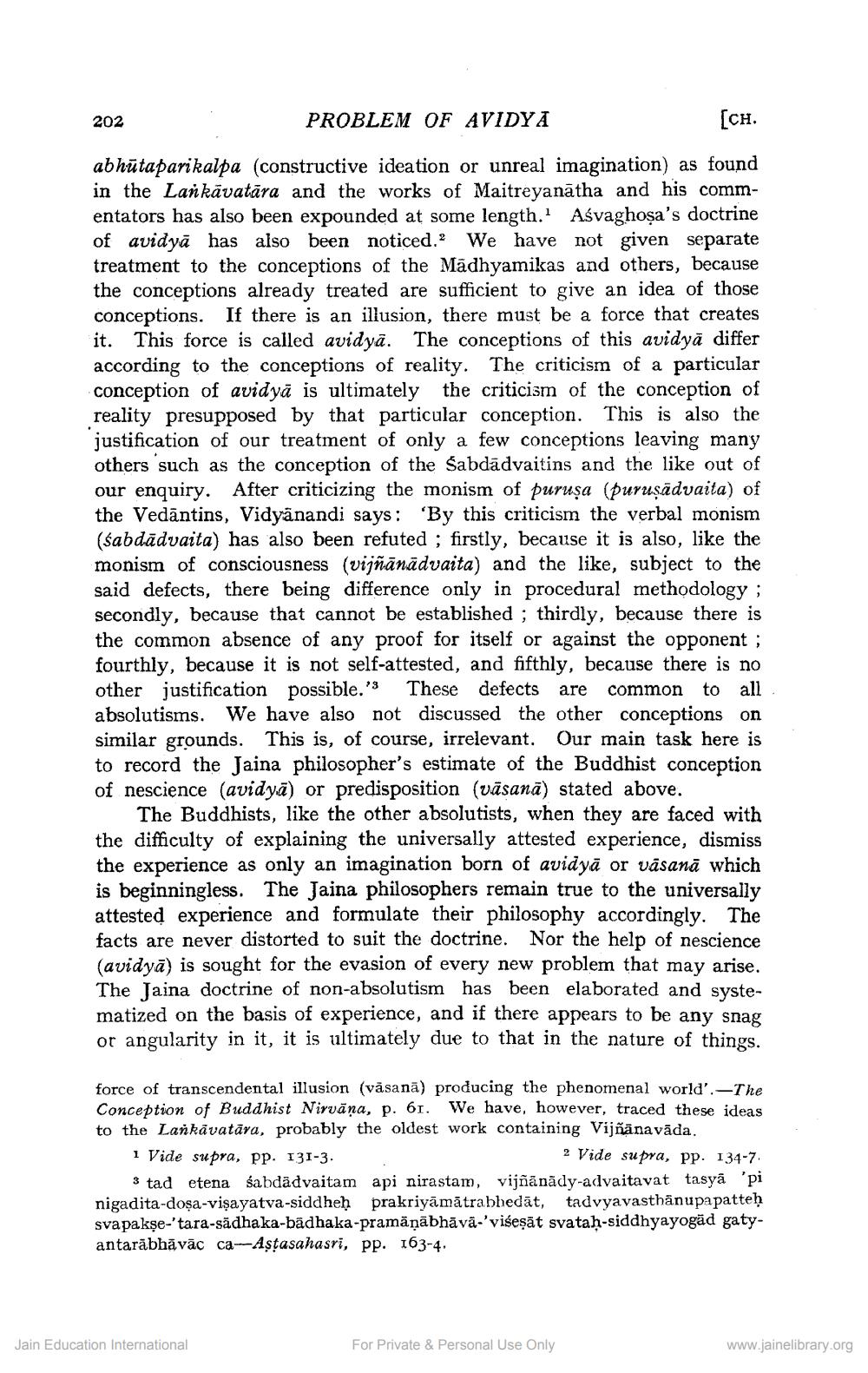________________
202
PROBLEM OF AVIDYA
[CH
abhūtaparikalpa (constructive ideation or unreal imagination) as found in the Lankāvatāra and the works of Maitreyanātha and his commentators has also been expounded at some length. Ašvaghoşa's doctrine of avidyā has also been noticed. We have not given separate treatment to the conceptions of the Madhyamikas and others, because the conceptions already treated are sufficient to give an idea of those conceptions. If there is an illusion, there must be a force that creates it. This force is called avidyā. The conceptions of this avidyā differ according to the conceptions of reality. The criticism of a particular conception of avidyā is ultimately the criticism of the conception of reality presupposed by that particular conception. This is also the justification of our treatment of only a few conceptions leaving many others such as the conception of the Sabdādvaitins and the like out of our enquiry. After criticizing the monism of puruşa (puruşādvaita) of the Vedāntins, Vidyānandi says: 'By this criticism the verbal monism (sabdādvaita) has also been refuted ; firstly, because it is also, like the monism of consciousness (vijñānādvaita) and the like, subject to the said defects, there being difference only in procedural methodology ; secondly, because that cannot be established ; thirdly, because there is the common absence of any proof for itself or against the opponent ; fourthly, because it is not self-attested, and fifthly, because there is no other justification possible.'3 These defects are common to all absolutisms. We have also not discussed the other conceptions on similar grounds. This is, of course, irrelevant. Our main task here is to record the Jaina philosopher's estimate of the Buddhist conception of nescience (avidya) or predisposition (vāsanā) stated above.
The Buddhists, like the other absolutists, when they are faced with the difficulty of explaining the universally attested experience, dismiss the experience as only an imagination born of avidyā or vâsanā which is beginningless. The Jaina philosophers remain true to the universally attested experience and formulate their philosophy accordingly. The facts are never distorted to suit the doctrine. Nor the help of nescience (avidyā) is sought for the evasion of every new problem that may arise. The Jaina doctrine of non-absolutism has been elaborated and systematized on the basis of experience, and if there appears to be any snag or angularity in it, it is ultimately due to that in the nature of things.
force of transcendental illusion (vāsanā) producing the phenomenal world'.-The Conception of Buddhist Nirvāna, p. 61. We have, however, traced these ideas to the Lankāvatāra, probably the oldest work containing Vijñānavāda. i Vide supra, pp. 131-3.
2 Vide supra, pp. 134-7 3 tad etena sabdadvaitam api nirastam, vijñānādy-advaitavat tasyā 'pi nigadita-dosa-vişa yatva-siddheh prakriyāmātrabhedāt, tadvyavasthānupapatten sva pakşe-'tara-sādhaka-badhaka-pramāņābhāvā.'viseşāt svatah-siddhyayogad gatyantarābhāvāc ca--Astasahasri, PP. 163-4.
Jain Education International
For Private & Personal Use Only
www.jainelibrary.org




